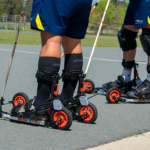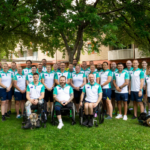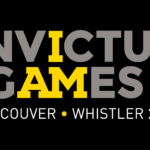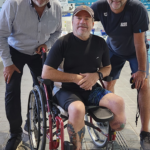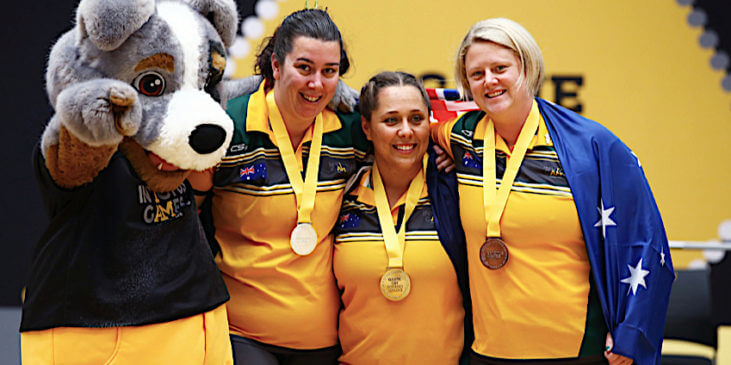
Sport is absolutely integral to my rehabilitation
Brigid Baker is taking on three new sports at Warrior Games 2019. The Invictus Games Sydney 2018 competitor has added indoor rowing, sitting volleyball and swimming to her IG2018 sports which included powerlifting and athletics.
Baker has a full schedule, but she plans to make the most of the experience and immerse herself in the Games and the opportunities it offers outside of the courts, pool and track. We asked Brigid to tell us about her preparations for the Games and how sport has improved her day-to-day life…
You were part of Australia’s Invictus Games team in Sydney, what about the Warrior Games are you looking forward to?
IG2018 was an amazing experience, my first in that type of environment. The support and friendship between the teams was phenomenal, it was comforting to be back amongst people I could relate to, something I had missed since being discharged. I am looking forward to catching up with those new found friends in Tampa, making new ones and once again being part of that environment – and importantly, having fun!
Can you explain the process you have gone through to prepare for the Warrior Games?
Preparation for the Warrior Games has been very different to IG2018, I’m participating in a few more sports this time so training has had to be scaled to allow me to cover all of the new disciplines, in addition to keeping up the previous ones. I attended the selection camp back in April and tried my hand at a few additional sports and thoroughly enjoyed myself. Being selected for those sports I have now had to adapt my training schedule. I train most days, be it at the gym, track, pool or field – it’s been good to try my hand at additional sports as I’ve been able to cross train a little more and work on developing a broader fitness/skills base.
What prompted you to take on new sports and how have you found that experience?
I took on additional sports for Warrior Games as a challenge for myself. The next step in my rehabilitation was to edge ever so slightly outside of my comfort zone and have a go at something new. There’s no better environment to give that a go than through this process. The key takeaway for me was the strong medical support team at the camp which went a long way to allay my fears should something go wrong. It’s also helped me to have a laugh at myself and not take things so seriously all the time. A small step towards relaxing a little.
How is sport helping with your rehabilitation?
Sport is absolutely integral to my rehabilitation. Without it, I find that I easily slide back into old habits, and not necessarily habits that are good for me. There is a noticeable change in my mood and ability to deal with my condition on the days that I do train. Sport also gives me goals that I can continue to adapt and scale to keep me on track.
What lessons have you learnt / momentum did you take from the Invictus Games?
The Invictus Games taught me that it is ok to not be ok, there will be days when things won’t go according to plan – and that’s ok. It also taught me that I can enjoy and play sport again, it’s not so much about the ‘winning’ as it is about the participation and support. Thanks to the ADF Adaptive Sport Program I now have an international support network that I can lean on without fear of judgement and likewise provide support for others when they need it.
What is your message to veterans in a similar situation to you?
I say take that leap of faith, you’ll be pleasantly surprised. There are more of us than you realise and when you do take that leap, we are there to support you through it all, regardless.
Photo Credit: Invictus Games 2018 Getty Images
